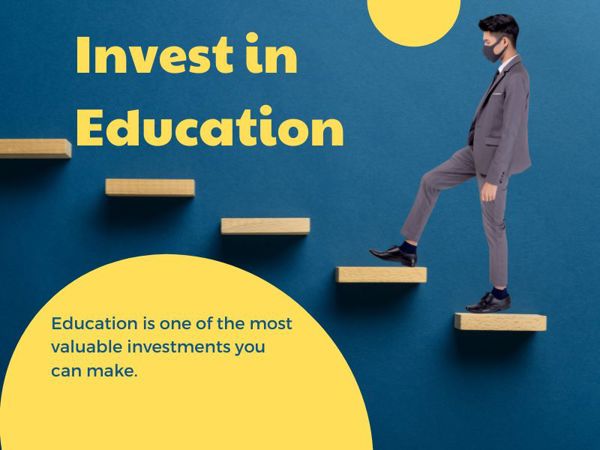Education is one of the most valuable investments you can make. It’s not just about sitting in a classroom; education encompasses a wide array of experiences and opportunities that contribute to personal and professional growth. In this blog post, we'll explore why you should invest in education, provide examples and step-by-step solutions, discuss the benefits of lifelong learning, and highlight best practices.
The Value of Education
Education provides the foundation for a prosperous and fulfilling life. It equips individuals with the knowledge, skills, and competencies needed to navigate and thrive in an ever-changing world.
Example:
- A person with a degree in computer science has more opportunities in the tech industry compared to someone without formal education in the field.
Step-by-Step Solution:
- Identify your interests and career goals.
- Research educational programs and courses that align with these goals.
- Enroll in relevant courses or degree programs.
- Dedicate time and effort to studying and completing assignments.
- Apply your knowledge in real-world scenarios through internships or projects.
Enhancing Career Prospects
Investing in education opens up a plethora of career opportunities. It enhances your employability and earning potential. Employers often seek candidates with the latest skills and knowledge, making education a key factor in career advancement.
Example:
- A marketing professional who pursues a certification in digital marketing can increase their job prospects and potentially earn a higher salary.
Step-by-Step Solution:
- Evaluate your current skills and identify areas for improvement.
- Choose a certification or training program that addresses these gaps.
- Complete the program and earn the certification.
- Update your resume and LinkedIn profile to reflect your new qualifications.
- Network with industry professionals to explore new job opportunities.
Personal Growth and Development
Education is not just about professional success; it also contributes to personal growth. Learning new things stimulates the mind, enhances critical thinking, and fosters a sense of accomplishment.
Example:
- Learning a new language can improve cognitive abilities and cultural awareness.
Step-by-Step Solution:
- Set a personal learning goal (e.g., learning a new language).
- Find resources such as online courses, books, or language exchange programs.
- Dedicate a specific amount of time each day to practice.
- Engage with native speakers to enhance your language skills.
- Celebrate milestones and progress.
Lifelong Learning: The Benefits
Lifelong learning is the continuous pursuit of knowledge for personal or professional reasons. It’s about staying curious and open to new experiences, regardless of age or stage in life.
Benefits of Lifelong Learning:
- Adaptability: Keeps you updated with industry trends and changes.
- Competitiveness: Enhances your skills, making you more competitive in the job market.
- Innovation: Encourages creativity and innovation by exposing you to new ideas and perspectives.
- Fulfillment: Provides a sense of purpose and satisfaction by achieving personal and professional goals.
- Social Connections: Expands your network by connecting with like-minded individuals.
Example:
- An entrepreneur continuously learning about new business strategies can adapt to market changes and innovate their business model.
Education Beyond the Classroom
Education is not confined to traditional classrooms. It encompasses various forms of learning, including online courses, workshops, seminars, and self-study.
Example:
- Online platforms like Coursera, Udemy, and Khan Academy offer courses on a wide range of subjects that you can study at your own pace.
Step-by-Step Solution:
- Identify your learning preferences and goals.
- Explore various learning platforms and resources.
- Enroll in courses or programs that match your interests.
- Create a study schedule that fits your lifestyle.
- Apply the knowledge gained in practical settings.
Best Practices for Investing in Education
- Set Clear Goals: Define what you want to achieve through education and set specific, measurable goals.
- Research Thoroughly: Investigate different educational opportunities and choose reputable institutions or platforms.
- Budget Wisely: Allocate resources for education, including time and money, and seek financial aid or scholarships if needed.
- Stay Committed: Dedicate yourself to continuous learning and stay motivated to complete your courses or programs.
- Apply Knowledge: Use the knowledge and skills gained to solve real-world problems and advance your career or personal projects.

.jpg)







